Adventurer's trek claim 'ignorant', say islanders
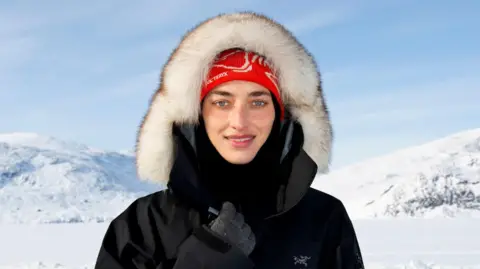 PA Media
PA MediaAn adventurer who claimed to be the first woman to solo traverse Canada's largest island has been criticised for her "privilege and ignorance".
Camilla Hempleman-Adams, from Wiltshire, covered 150 miles (241km) on foot and by ski across Baffin Island, Nunavut, completing the journey on 27 March.
However, members of the native Inuit population said her claim was incorrect and came from a "dangerous colonial attitude", with people there having travelled the same route for generations.
The daughter of adventurer Sir David Hempleman-Adams has since apologised, adding: "It was never my intention to misrepresent any historical achievements or cause distress to local communities."
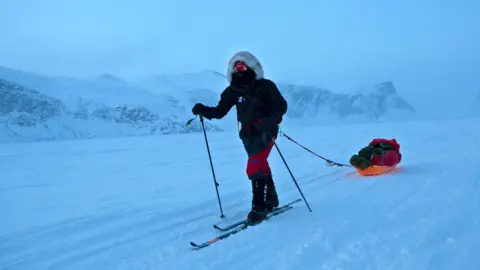 PA Media
PA MediaThe solo trek across Baffin Island took Ms Hempleman-Adams from Qikiqtarjuaq to Pangnirtung, crossing through Auyuittuq National Park.
Ahead of departure, she wrote on her expedition website: "Parks Canada has confirmed that there are no historical records of a female solo attempt from Qikiqtarjuaq to Pangnirtung."
But Gayle Uyagaqi Kabloona, who is Inuit and based in Ottawa, said this was because crossing the terrain is considered "a normal way of life" for them.
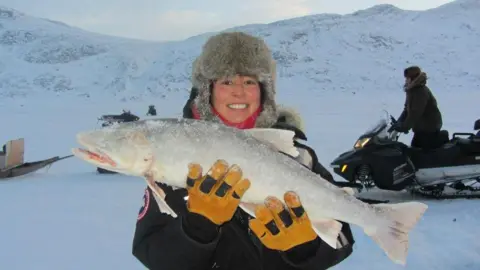 Alex Flaherty
Alex Flaherty“The article hit people really hard in a very sensitive spot, because of our history and the difficulties we face every day in combatting Western colonialism," she said.
"This woman is coming here from such a place of privilege and ignorance that it seems dangerous.
"It was almost like she was bringing back news of a new continent to Europe and saying 'there's nobody here!' We were and still are.
"It's such a clear example of how colonialism benefits from dispossessing indigenous people of their land and writing us out of history."
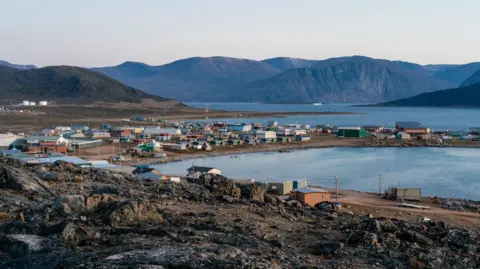 Getty Images
Getty ImagesIn a statement, Ms Hempleman-Adams apologised for the offence caused by her expedition coverage.
"I have deep respect for the land, its people, and their history," she said.
"I have travelled in this region multiple times and hold immense admiration for its nature, culture and traditions.
"I am truly saddened that the coverage of my journey may have caused concern or upset, and I remain committed to learning from this experience and engaging with the community with the utmost respect."
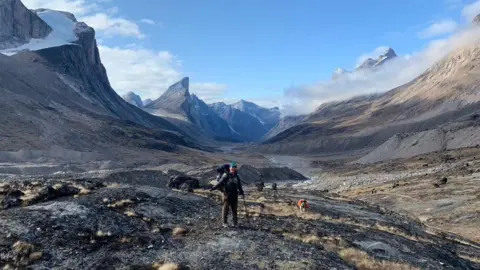 Nathan Jocko
Nathan JockoMs Kabloona said the matter had affected the community because many people who lived traditional nomadic lifestyles had now passed away - raising concerns that cultural practices will gradually be lost to time.
She is now in the process of mapping out the route her family has taken for generations while migrating south in spring, towards the caribou hunting grounds.
On one of these annual 186-mile (300km) journeys, Ms Kabloona's grandmother went into labour and gave birth to her father in a tent along the way.
"Two days later, she got up and carried on walking," Ms Kabloona said.
"She did that in every single one of her pregnancies, traversed our land, because that is our way of life and always has been."
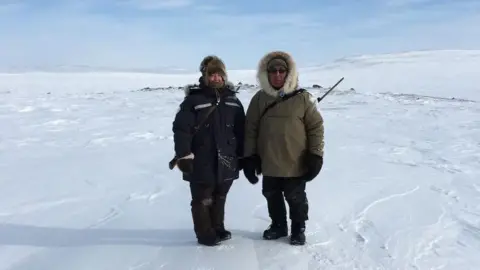 James Taipana
James TaipanaMs Kabloona said she welcomed visitors to the region but disapproved of the "outdated" term "explorer", as it carried with it connotations of imperialist expansion.
"If you want to come and enjoy the outdoors, please do so," she said.
"The danger is going back with this colonial attitude and disseminating information like the Inuit don't have history there.
"Saying you're the 'first person' to do anything in an indigenous country is insulting.
"Show respect to the land and the people who have kept it pristine for your adventures."
Follow BBC Wiltshire on Facebook, X and Instagram. Send your story ideas to us on email or via WhatsApp on 0800 313 4630.
